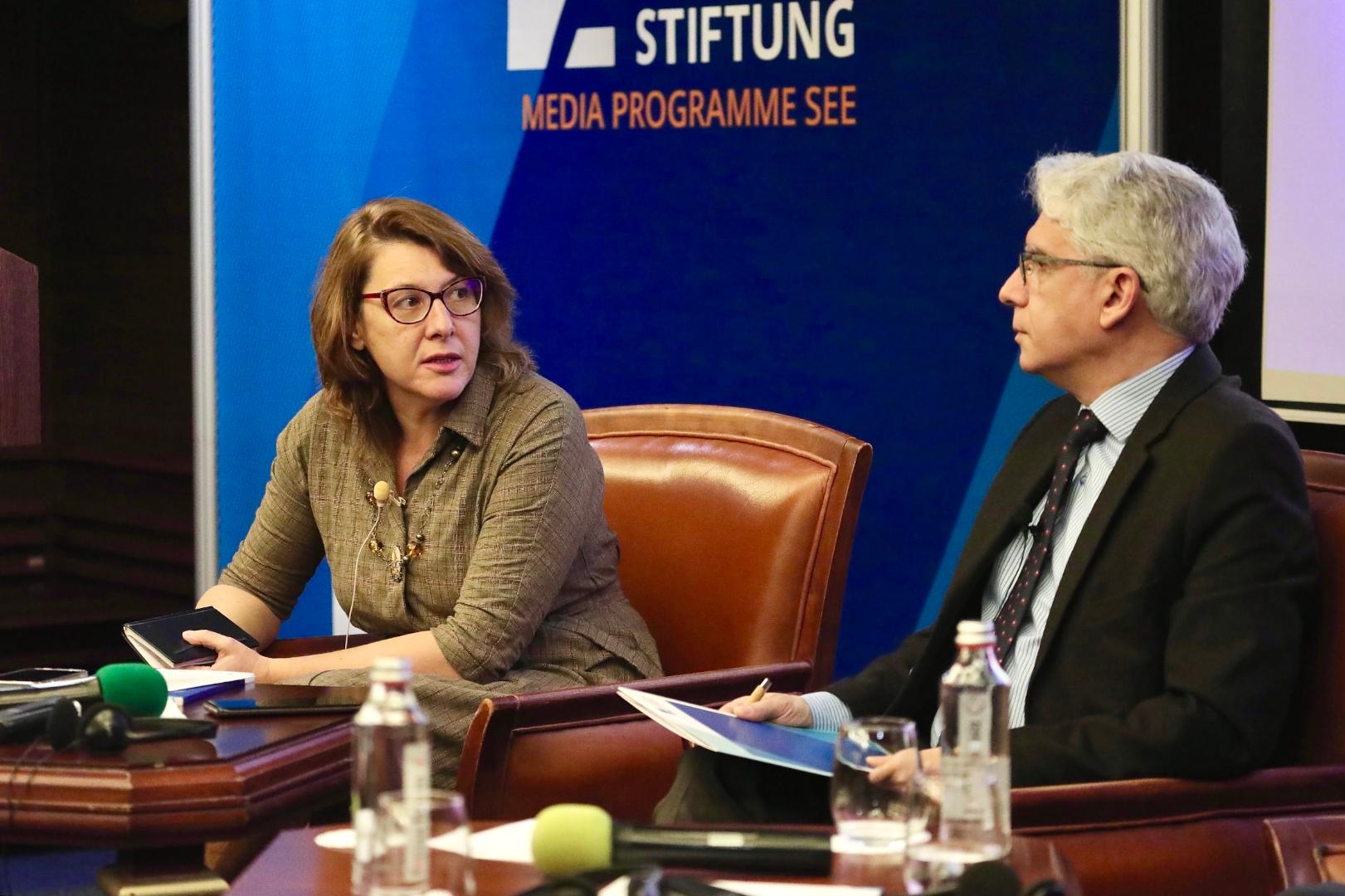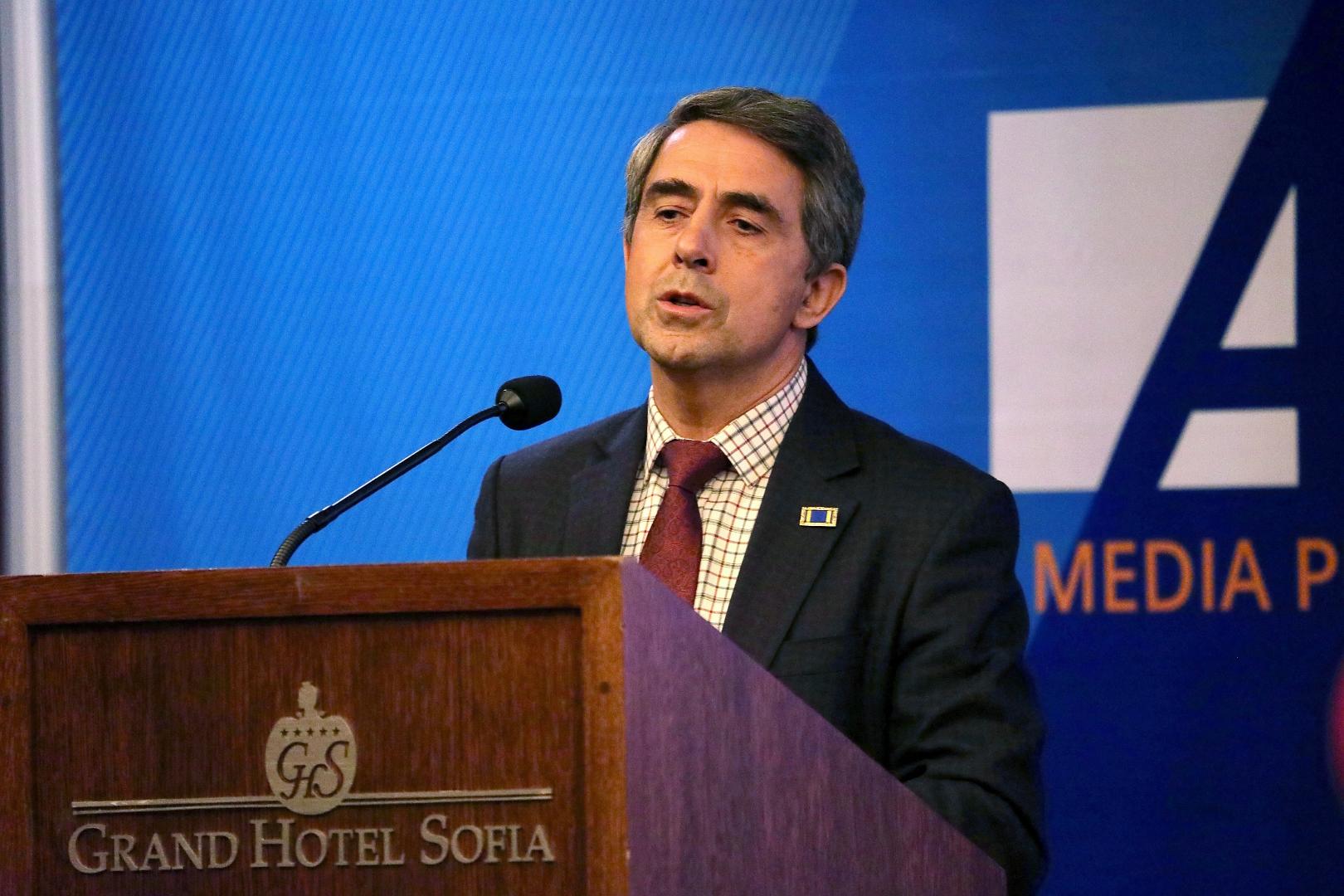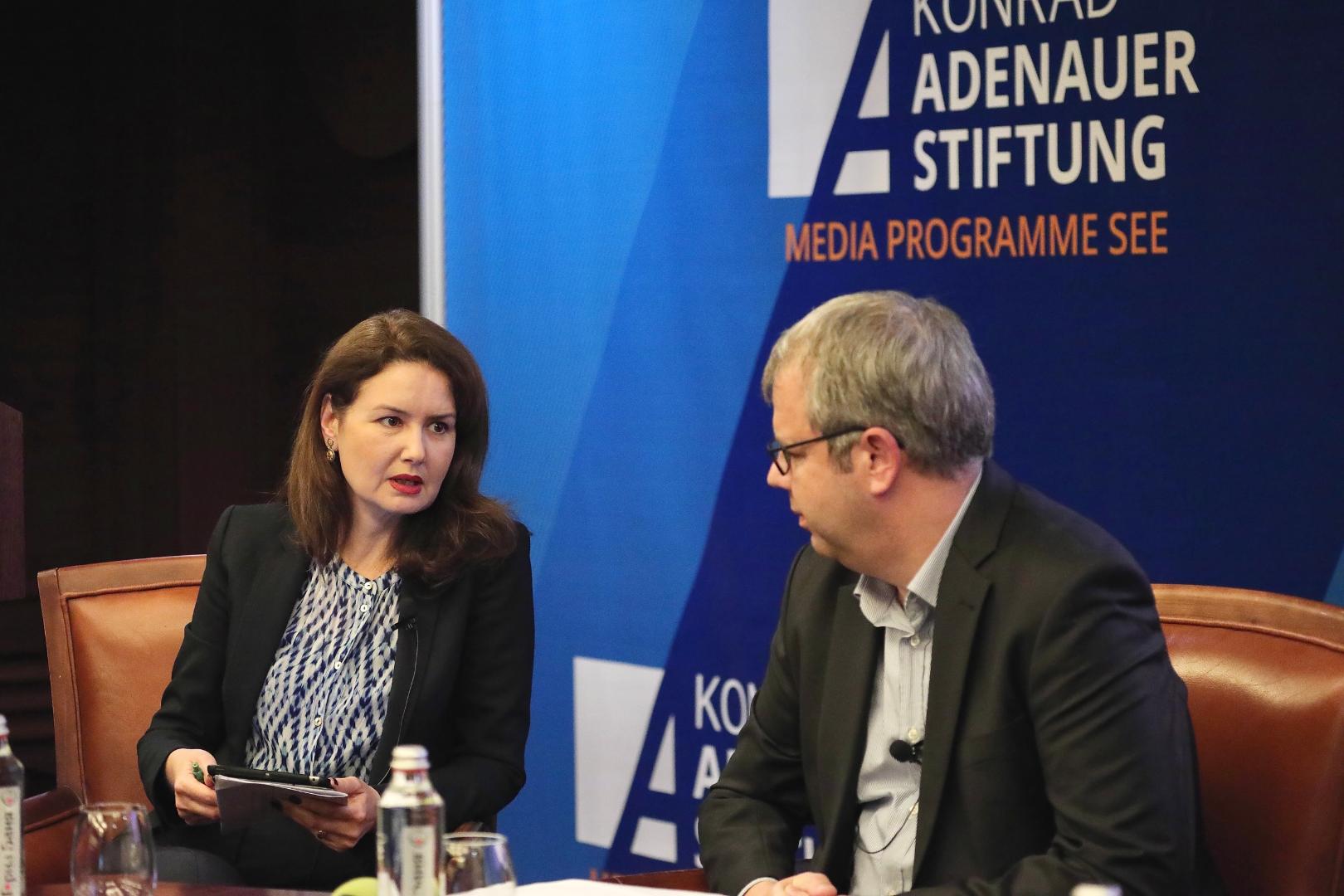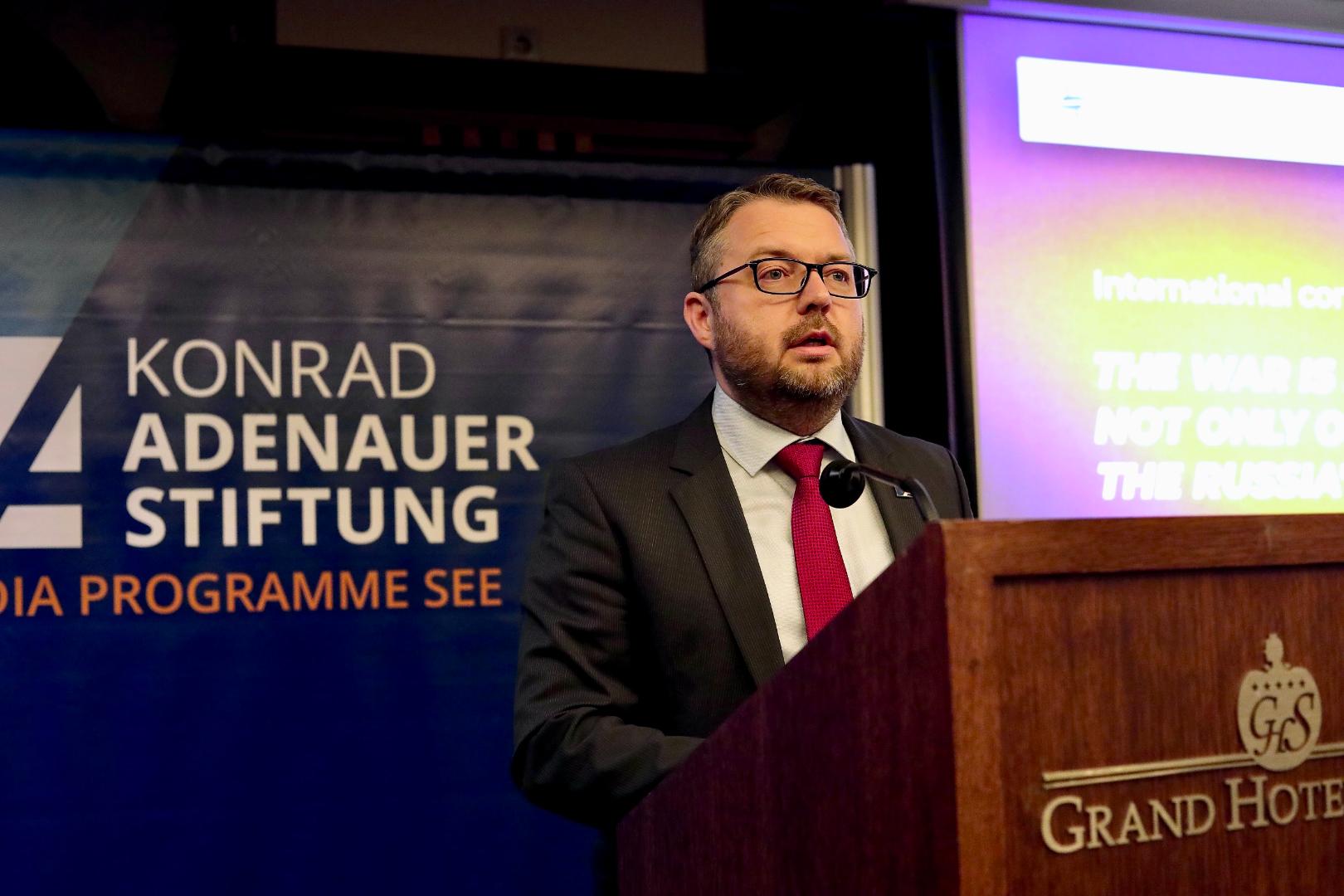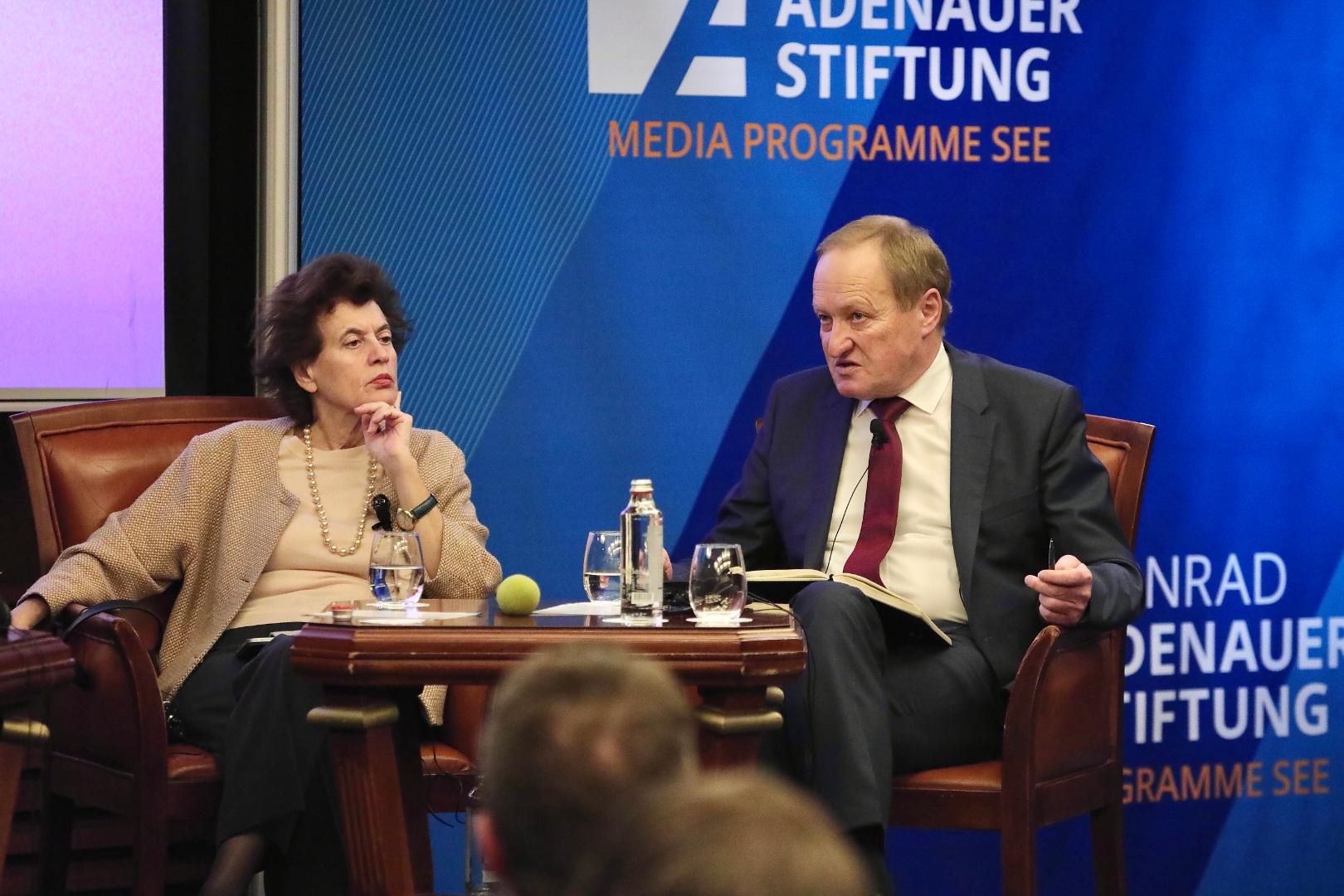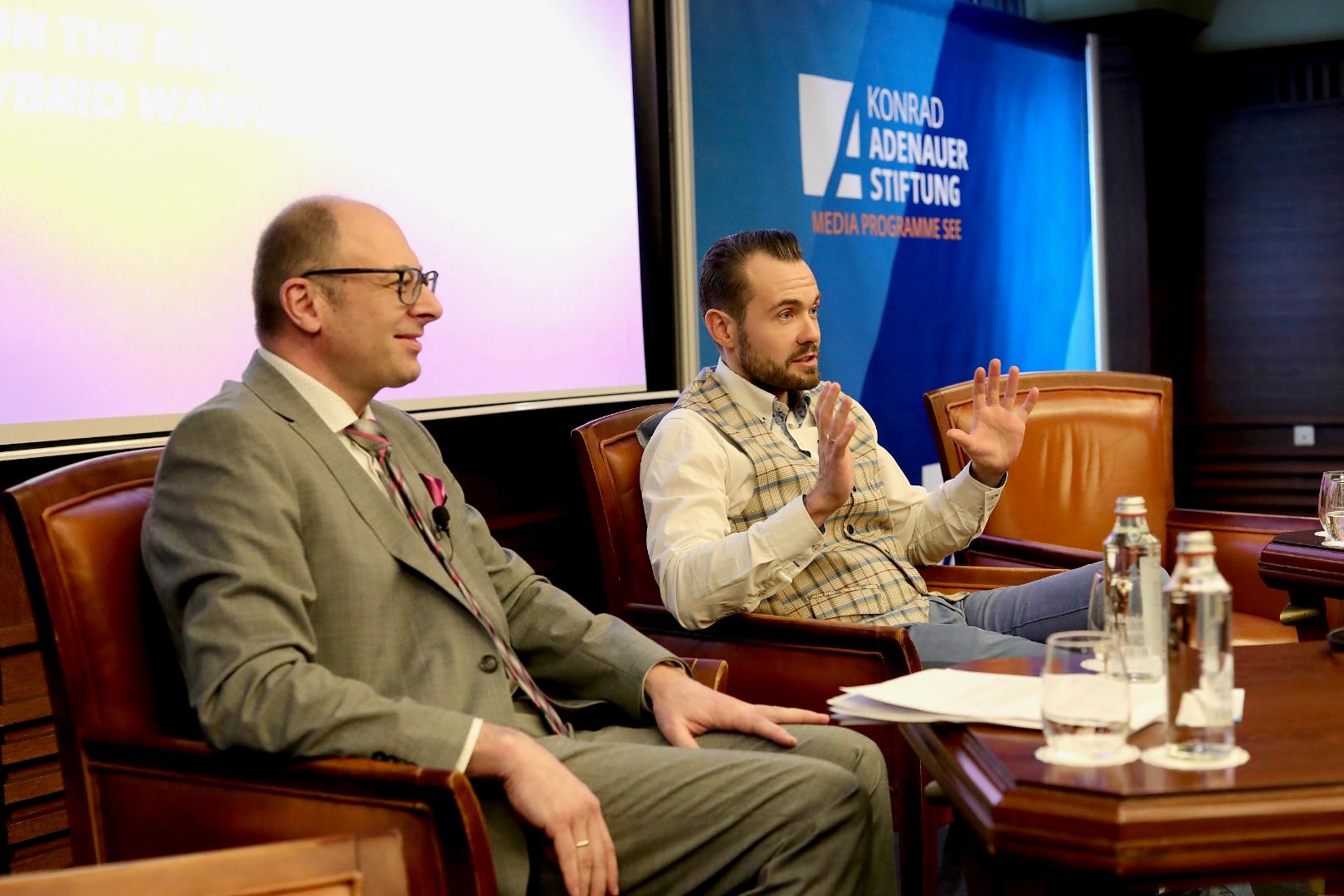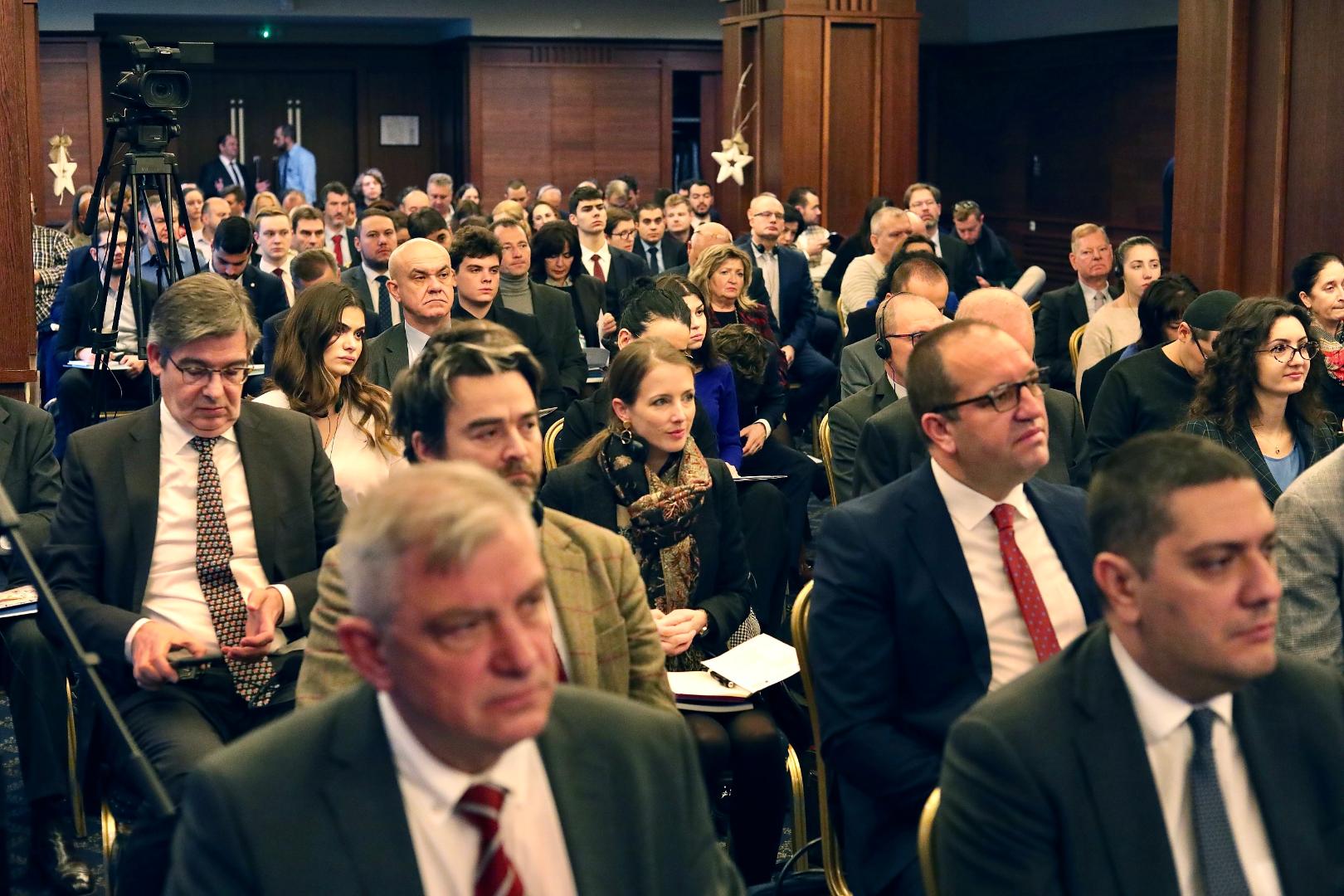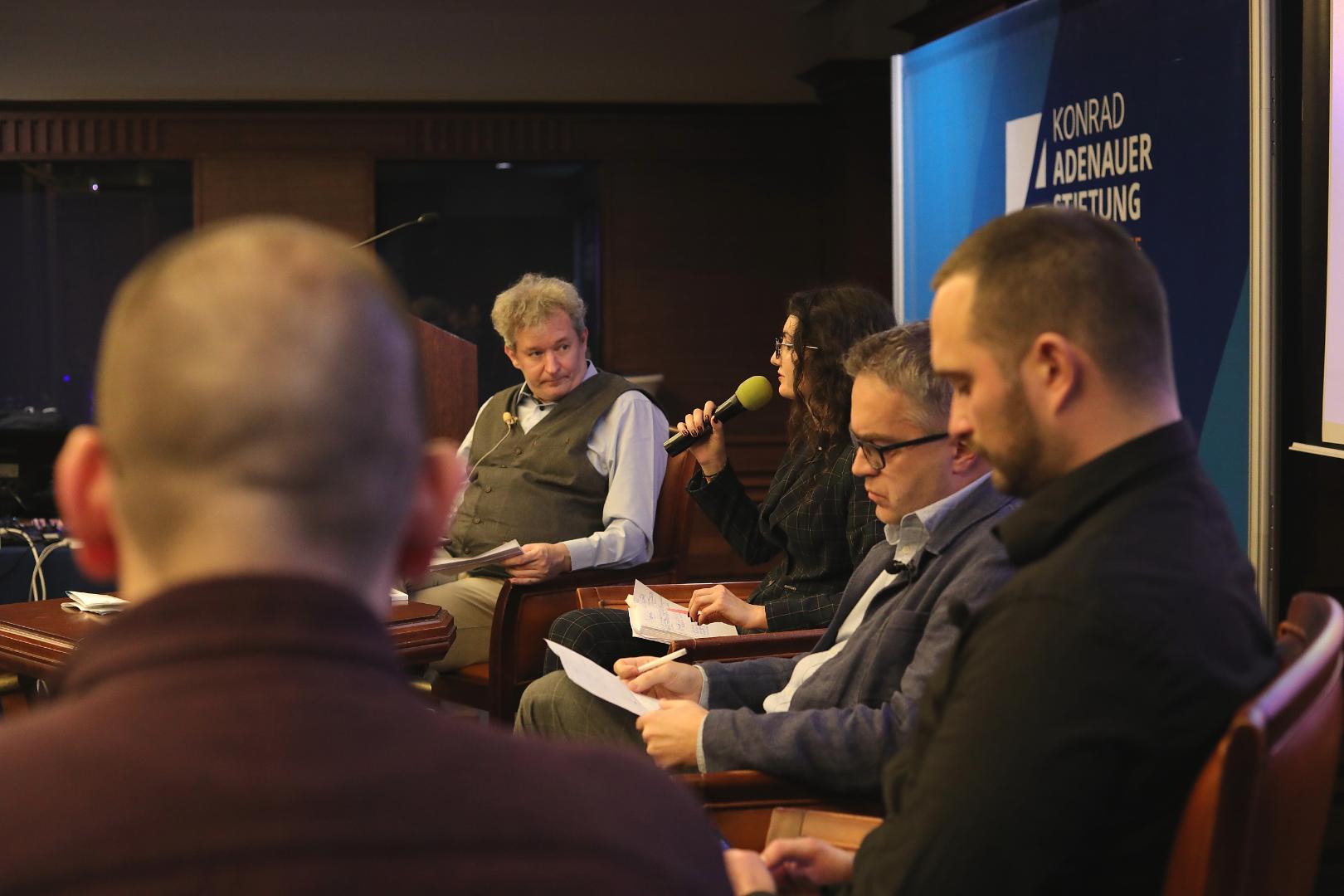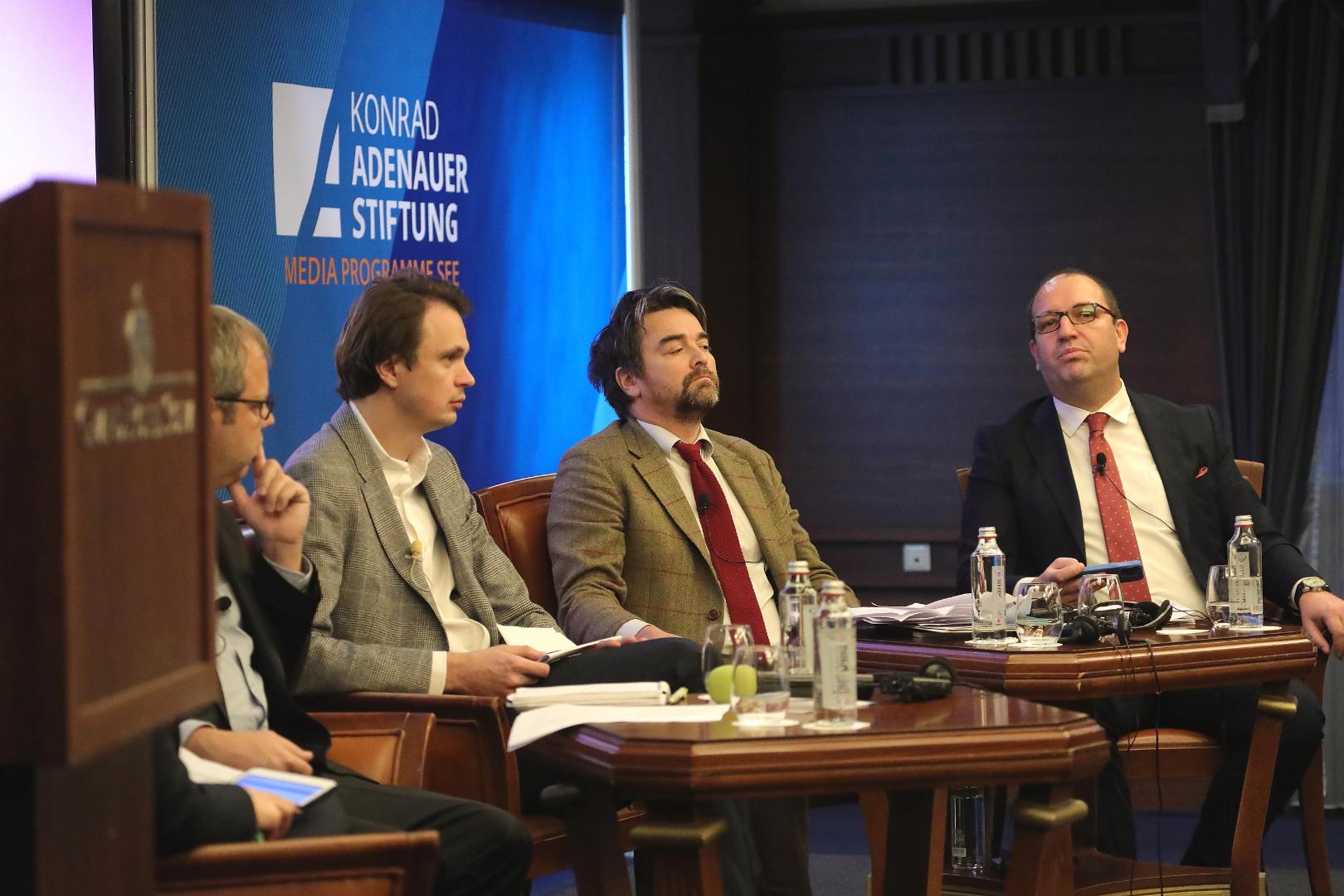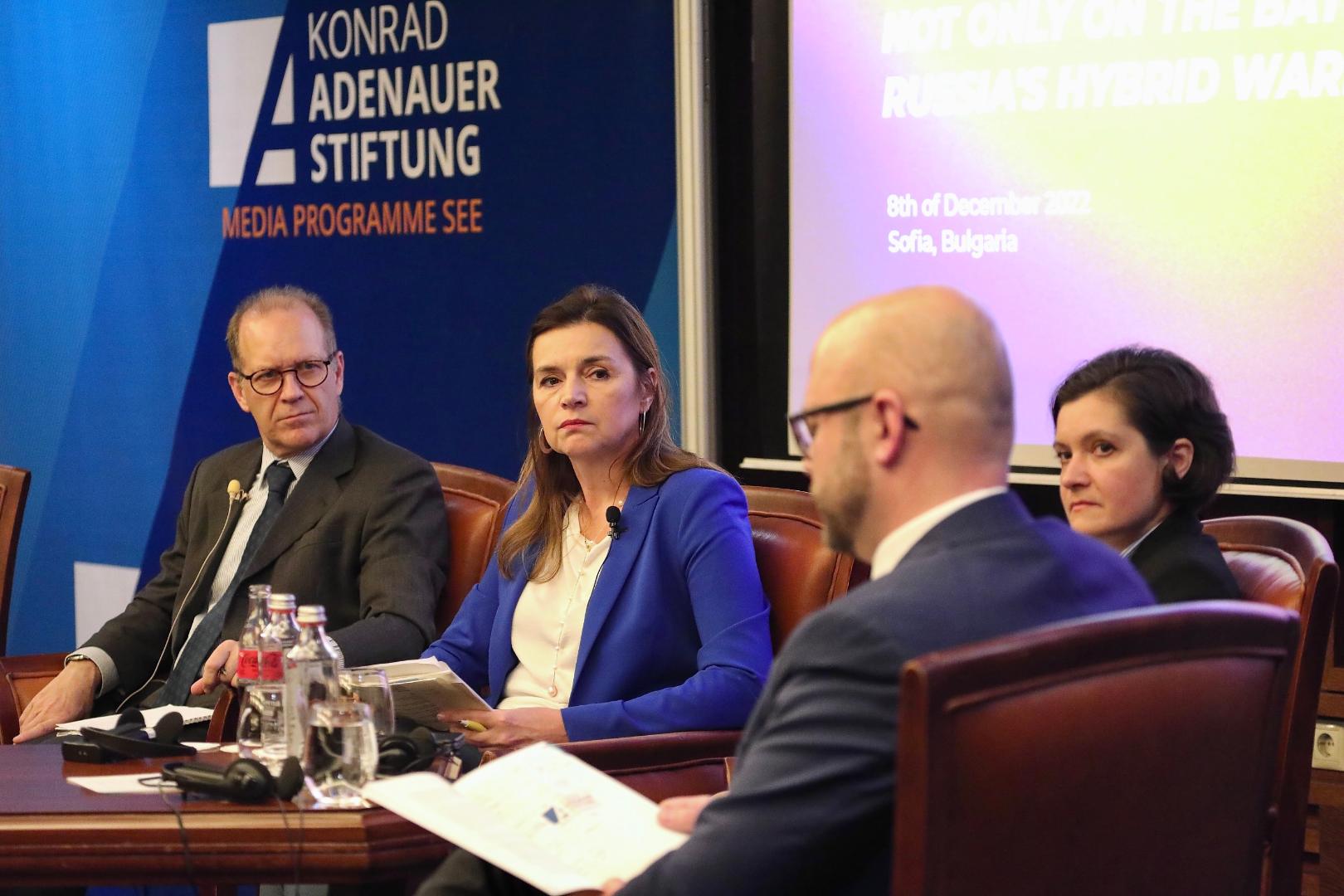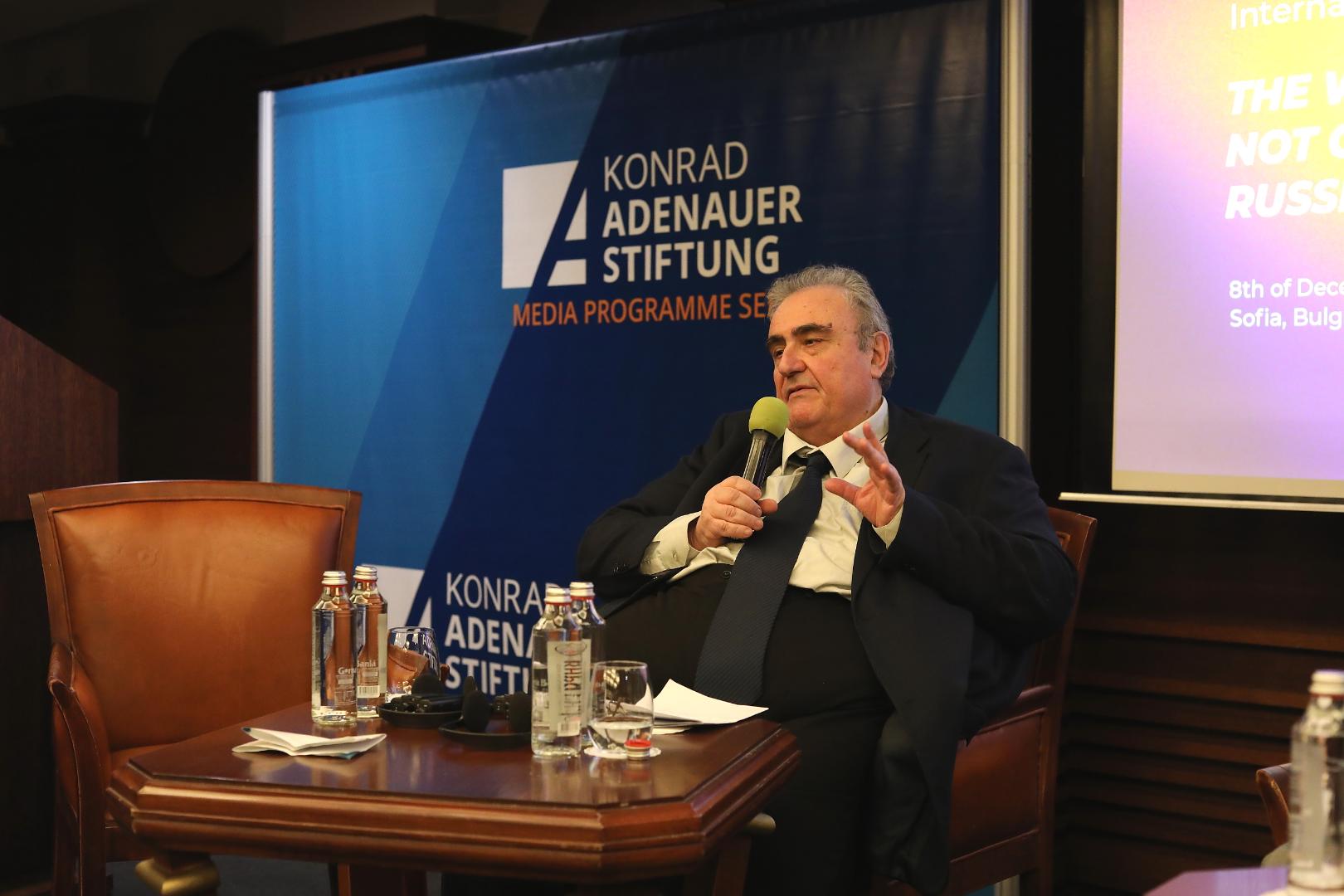Russia's war against Ukraine is the biggest challenge to international peace and security. It makes thousands of Ukrainian civilians lose their lives, millions were displaced or taken refuge abroad, and the Ukrainian infrastructure is heavily damaged. But the dimensions of the war go far beyond what is happening in Ukraine. Rising inflation and blocked grain exports from Ukraine have a serious impact on the whole world, creating insecurity and provoking a food crisis, which in turn will worsen the situation of insecurity in many regions. We already observe the impacts of the war on energy supplies and prices, growing inflation, the slowdown of economies, etc. Russia also strives to destroy the unity of NATO and the EU, weaken the transatlantic relationship, to create divisions and uncertainty in democratic societies. To reach its goals Russia uses its entire arsenal of means - cyber-attacks, disinformation, propaganda, proxies, and turns gas and oil into weapons for its purposes. Russia uses energy sources as means of pressure, turning them into a weapon of its policy. The war is being waged not only on the territory of Ukraine. Russia is waging a fierce hybrid war against “The West”. Particularly vulnerable are the countries from the Black sea region and the Balkans.
The conference program was organized into four main panels and two special sessions dealing with all above-mentioned aspects of the war.
Hendrik Sittig, Head of the KAS Media Programme welcomed the approximately 130 participants of the conference and had to admit with regret right at the beginning that: "Unfortunately, we have to state today - all the warnings in recent years about the anti-democratic developments in Russia, all the references to the disinformation campaigns, the fake news that were produced and spread by the Russian side on purpose – just to divide and destroy our liberal democratic societies - all these warnings were important and correct.”
At the opening of the event, Rosen Plevneliev, President of Bulgaria (2012-2017) noted the criticality of the war in Ukraine stating that: “We are in a war the likes of which the world has not seen since 1980. War is being fought everywhere - it is energetic, propaganda, hybrid, and economic. And Putin is the new Hitler."
Speakers at the first panel, moderated by Petar Karaboev, Deputy Editor-in-Chief of the Online Newsportal dnevnik.bg, debated the consequences of the Russian war against Ukraine on international peace, security, and international legal-based order. The executive director of the Greek Institute of International Relations, Despina Afentouli, stated that we are still talking about the war in Ukraine as if it were somewhere else. In the public debate, the war is outside Europe, but in practice, it is in Europe. She paid special attention to the Western Balkans and noted that if the process of their integration is not accelerated, “Russia will be there before us”. According to her NATO is the only alliance for collective security in Europe, and with the support of the USA. Another lecturer, General Erhard Bühler drew attention to the unity of NATO and the EU in the face of Russian aggression in Ukraine. Vesela Cherneva, Deputy Director of the European Council on Foreign Relations and head of ECFR’s Sofia office, also stressed that the Ukraine war issue is also an issue related to the future of the European Union.
The second panel, moderated by Kristina Baxanova, Head of International News desk of the bTV Media Group, was dedicated to the analysis of the technology and forms of Russian hybrid warfare and the role of traditional and social media to counter this threat. Mykola Davydiuk, Ukrainian political scientist and author, said that Russian disinformation has become more aggressive, but no longer acts as intelligently and its main target is currently Europe. For decades Putin has put a lot of money into spreading disinformation and normal media could not compete with that. According to Davydiuk, the Russian narrative is no longer hybrid, as it was in 2014. Back then, Russia's goal was to manipulate and change: “We are now in a bloody war that wants to take us back to the past”, he stated. According to Todor Galev from the Center for the Study of Democracy Sofia is among the countries where Russia uses all its hybrid tools: „The media is only one of the weapons - the Bulgarians see the Russian disinformation every day." But Russia also uses cyber-attacks, removal of inconvenient people, and other forms and gave an example with the hacker attack on the Bulgarian post office, on the CEC in 2015, on the presidency, and various ministries. He also recalled the Russian connection in the poisoning of Emilian Gebrev, saying it was part of Putin's tools. Nikola Dujovski from the University of Skopje gave another example of Russia's hybrid wars. He said that in North Macedonia since October, about 368 signals for bombs have been received in high schools in Skopje. Most of these signals are sent from servers in Russia. He said that the goal is „to create fear and panic in parents and relatives" which is another weapon of the hybrid wars. Journalist Fabien Zamora from Agence France-Presse informed that the French media work very successfully with fact-checking platforms that are effective, but not all media have the means to pay for these platforms. An unsolvable problem remains the closed groups on Facebook and Telegram, where unverified information is spread without any problems.
In a so-called „Special talk “, Christopher Nehring, guest lecturer of the Media Programme at Sofia University, talked with the director of Sofia Security Forum Yordan Boshilov about the role of secret services and what should be the control over them, as well as the relationship between special services and the media.
Another special input was given by Vladimir Shopov, Visiting Fellow at the European Council on Foreign Relations and Rumena Filipova, Chairperson and Co-Founder of the Institute for Global Analytics Bulgaria. They presented their joint research “Authoritarians on a Media Offensive in the Midst of War. The Informational Influence of Russia, China, Turkey, Iran, and the Gulf States in Southeast Europe” – financed by KAS Media Programme SEE.
The third panel, moderated by Michael Martens, Southeast Europe correspondent of the Frankfurter Allgemeine Zeitung, was about the risks for the Southeastern European countries from hybrid threats. Southeast European countries are particularly vulnerable to Russian and other countries’ hybrid activities. The question of what are the major threats and how to cope with them was the issue of the panel. The participants (Rumena Filipova, Vladimir Shopov and the journalists Sasa Dragojlo from Serbia and Rusland Trad from Bulgaria) debated the influence of foreign powers on the countries of the Balkans. Several weaknesses in these countries that make them vulnerable have been highlighted.
The last panel, moderated by Alexandra von Nahmen, Chief of the Deutsche Welle's (DW) Brussels Bureau, focused on the need to build resilient societies in the face of Russian hybrid activities. The role of the governments, NGOs, Media, and other organizations to minimize the risks from propaganda and disinformation was discussed. Ivo Jurvee, Head of Security and Resilience Programme of the International Centre for Defence and Security Estonia, spoke about Estonia's experience in fighting hybrid threats. He noted the role of counter-intelligence services and the judiciary in combating hybrid activities. In Estonia, he noted, a system of Strategic communication at the state level was established. It is important to have good cooperation between all ministries. Veronica Dumitrascu from Romania presented the Euro-Atlantic Center for Resilience, which has the task of summarizing the experience in combating hybrid and other threats. According to the panelists - among them Soren Liborius from the European External Action Service in Brussels - education, as well as democracy, is key to addressing the problem of pro-Kremlin propaganda.
In the final part of the conference, Ognyan Minchev, Chairman of the Managing Board of the Institute for Regional and International Studies, spoke about the risks of hybrid wars in general, focusing on the situation in Bulgaria and why Russian propaganda finds a foothold in society.



